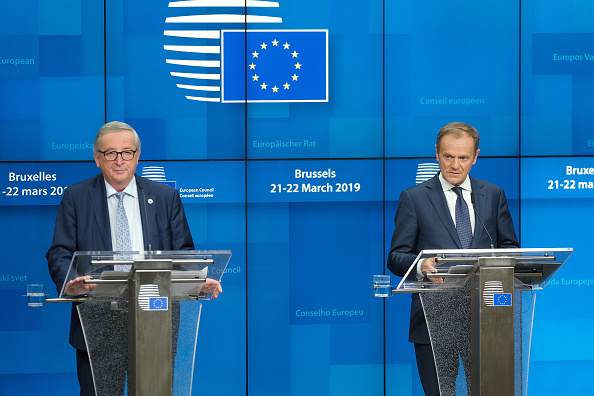Last night, the EU27 unanimously rejected Theresa May’s request for a June Brexit extension and told her 22 May at the latest – or 12 April if she couldn’t pass her deal). This pushes the cliff edge back by just a little, and makes nothing easier for her.
If her deal doesn’t pass, she would have to choose a no deal, or a long extension and agree to hold European parliament elections.
But that’s assuming that she will still be in control of the process at that point. Crucially, the extension gives time for MPs to take control of Brexit in the next three weeks. If her deal is rejected (as still looks likely) then parliament will have plenty opportunity to state its terms: for example, the Customs Union that Labour seeks.
Indeed, one such attempt by Cooper-Letwin-Boles has already been tabled for next Monday’s motion on Brexit. If this or other similar attempts succeed before 12 April, and May’s deal fails again, chances of a no deal will have receded significantly, as parliament would not countenance it. MPs still holding out for a no-deal Brexit could be bitterly disappointed.
The April deadline makes it impossible for the UK to hold European Parliament elections, according to Donald Tusk. To some, this will enhance the chances of a no-deal (or WTO) Brexit, so those wishing this will be less likely to back May’s deal. The extension has just made things tougher for her. But for no deal to pass, parliament would have to be unable to agree on an alternative.
A petition to revoke Article 50 already has two million signatures. It’s unlikely to come to a vote, but in his Daily Telegraph column today Fraser Nelson says it would pass if the only alternative was a no-deal Brexit. But parliament will now have plenty other ways of pushing through a softer Brexit.
The extension does not improve May’s chances of getting her deal though. But it does improve Parliament’s chances of getting its terms through.







Comments